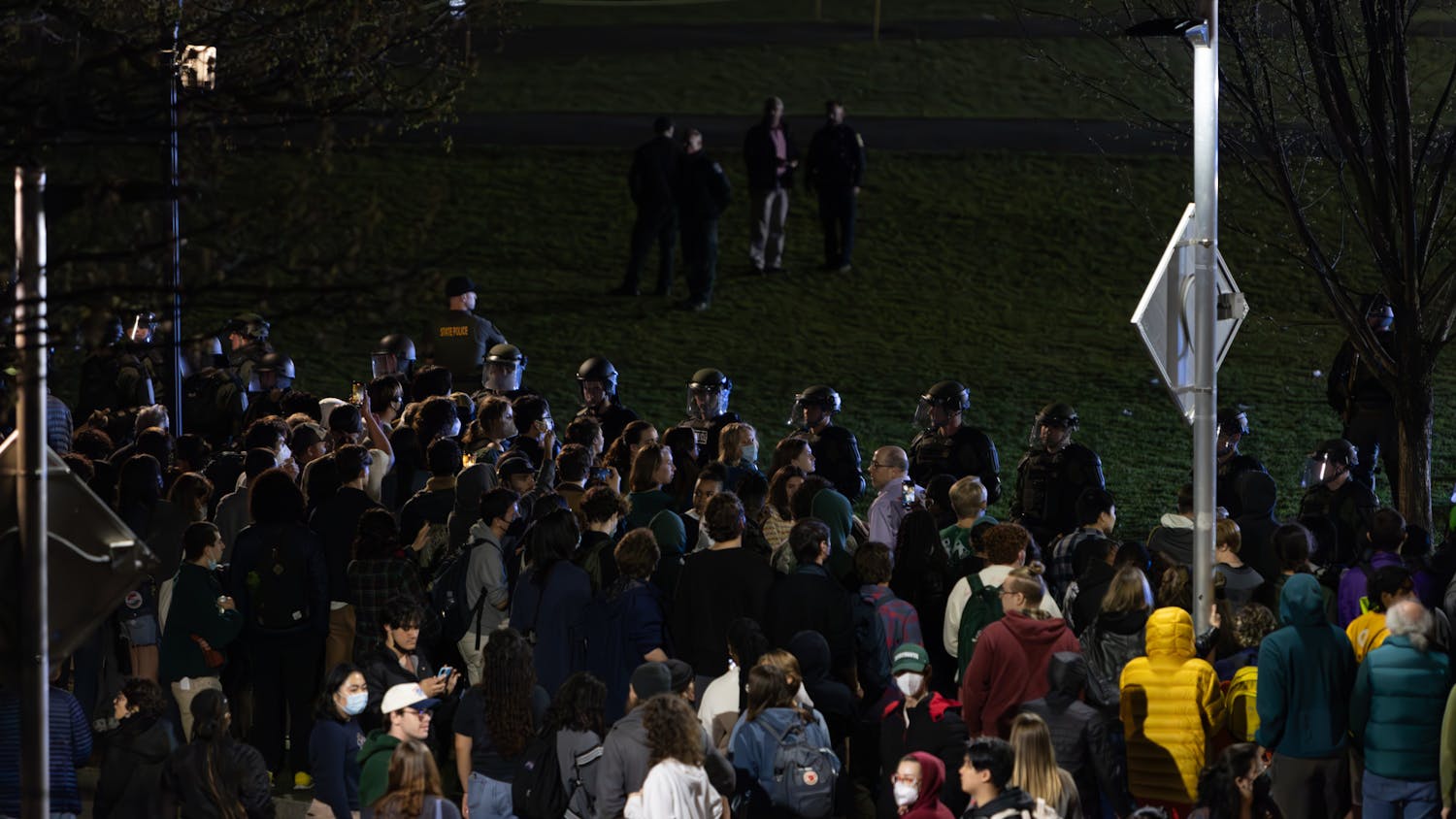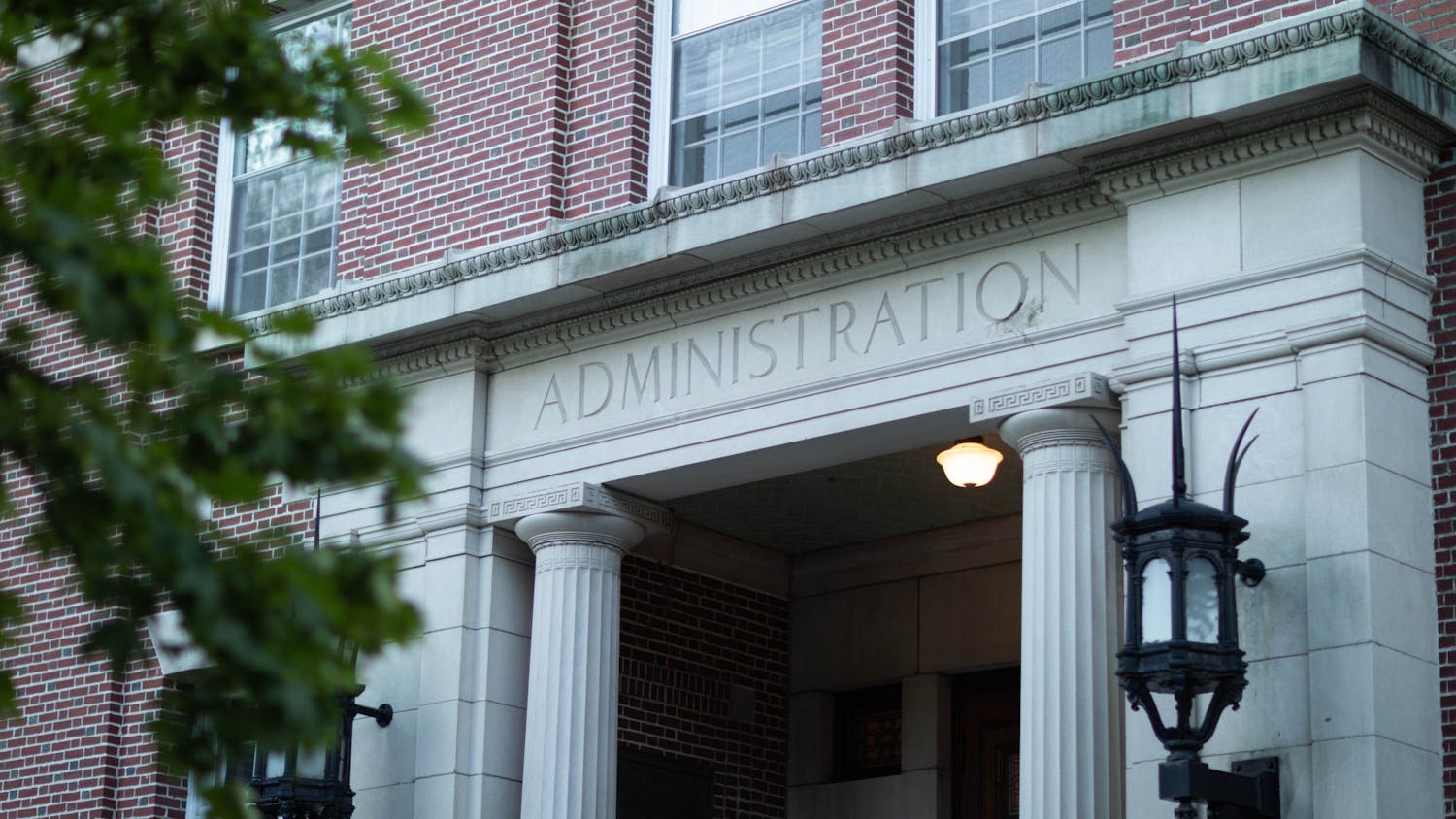A faculty committee will convene this fall to consider opening course reviews to students, following a proposal that was tabled at a meeting in May. The issue will then be decided in a general faculty vote, according to the Dean of the Faculty office.
Under the May proposal, course reviews would be available to students via an online portal, and would date back to 2006. Professors would not be able to view their colleagues’ reviews.
Last year, Student Assembly’s academic affairs committee launched a campaign to implement open course evaluations. The Assembly surveyed students through a campus-wide email to assess the popularity of open course evaluations, and sent the results to Dean of the Faculty Michael Mastanduno.
Although students currently submit course reviews at the end of each academic term, the information is not made publicly available. Without access to a comprehensive set of course reviews, students use informal review sites like the Hacker Club Course Picker to gather peer opinion or often rely on the advice of upperclassmen.
In April, the committee of chairs, which includes heads of the College’s arts and sciences departments, recommended approving the initiative spearheaded by Student Assembly.
Despite support from department heads and many students, several professors raised concerns at May’s faculty meeting over the proposal’s wording and implementation. In follow-up interviews with The Dartmouth, professors noted that open course assessments might disadvantage women and minority professors, or those who assign more work and give lower grades.
“My only concern about opting in would be giving those few students so inclined a broader platform to spew out anonymous negative, irresponsible or juvenile criticism of a particular faculty member that has no real basis in fact, or worse, is rooted in bias against a particular teacher,” Native American studies chair Bruce Duthu said.
English department vice chair Michael Chaney said he would have no problem opting in, but understands his colleagues’ concerns.
“Student course evaluations are not infallible instruments for measuring whether or not a student will receive an amazing educational experience,” he said. “Course evaluations cannot contain nor stand in for all the complexities that make up a successful educational experience.”
May’s faculty meeting was the first to discuss open course evaluations. Mastanduno suggested postponing the vote because it was unlikely to pass.
The potential new course evaluation website would include results from the six quantitative questions on the evaluation form students currently fill out, as well as three new, qualitative questions developed by the Student Assembly.
Duthu said narrative assessments are more valuable in helping a teacher understand what students found beneficial if they provide honest and critical feedback.
“In my experience, the overwhelming majority of Dartmouth students seem to approach faculty evaluations in this [honest and critical] spirit,” Duthu said. “As a result, I’d be inclined to move toward more open course evaluations.”
Chaney said although most Dartmouth professors expect students to inform each other about classes and professors, an official database would be a strong addition.
Cornell University, Harvard University, Princeton University, the University of Pennsylvania and Yale University publish official course reviews. Students at Harvard are currently negotiating with administrators to keep course difficulty scores in their course guide.
“The Critical Review,” a student organization at Brown University, publishes course reviews based on student and instructor questionnaire responses. At Columbia University, individual departments may opt-in to open evaluations.



